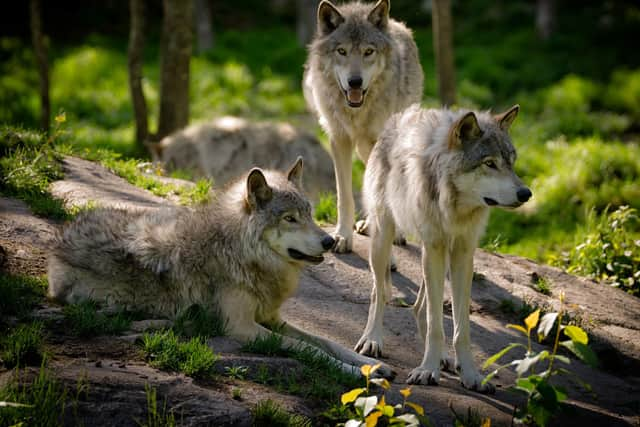Highlands and Grampian mountains are best places to bring back wolves to Scotland, study finds
A paper published by Vashti Gwynn and Elias Symeonakis, from Manchester Metropolitan University’s department of natural sciences, concludes “reintroduction should be feasible” due to high densities of deer for food and remote terrain with sparse human populations and few roads.
The researchers have calculated the areas have suitable habitat sufficient to support between 50 and 94 packs of four wolves.
Advertisement
Hide AdAdvertisement
Hide AdThey believe bringing back wolves, which have been extinct in Scotland for around 250 years, would provide natural culling that would reduce unsustainably high deer numbers to healthy levels.


Scotland’s deer population has virtually doubled in the past 30 years, with current estimates putting numbers at around one million, including native red and roe and non-native sika and fallow deer.
Official estimates suggest the density could be as high as 64 per square kilometre in some areas – far in excess of the six per square kilometre recommended as sustainable.
Grazing by deer causes significant damage to young trees, costing millions of pounds each year.
The researchers say further research is needed to fill knowledge gaps and determine “the desirability of reintroduction”, which has happened in other places across the world with beneficial effects on the environment.
The paper states: “With the recolonisation of Europe by wolves, Britain increasingly becomes an outlier in its lack of apex predators.
“If the nation were not an island, wolves would likely soon cross our borders, if they had not already done so.
“As it is, short of escape from captivity, it is impossible for wolves to recolonise naturally, regardless of the suitability of our habitats or the desirability of their presence.
Advertisement
Hide AdAdvertisement
Hide Ad“Whether they return to Britain is a decision we must make actively, and in full consideration of the wolf’s requirements and impacts.”
The research concludes: “This study supports previous conclusions that in terms of habitat suitability, the Highlands or Grampians would be the most appropriate places for wolf reintroduction.”
Previous studies have estimated the presence of wolves in Scotland for 60 years would lower deer densities to about seven per square kilometre.
A message from the Editor:
Thank you for reading this article. We’re more reliant on your support than ever as the shift in consumer habits brought about by coronavirus impacts our advertisers.
If you haven’t already, please consider supporting our trusted, fact-checked journalism by taking out a digital subscription.
Comments
Want to join the conversation? Please or to comment on this article.
